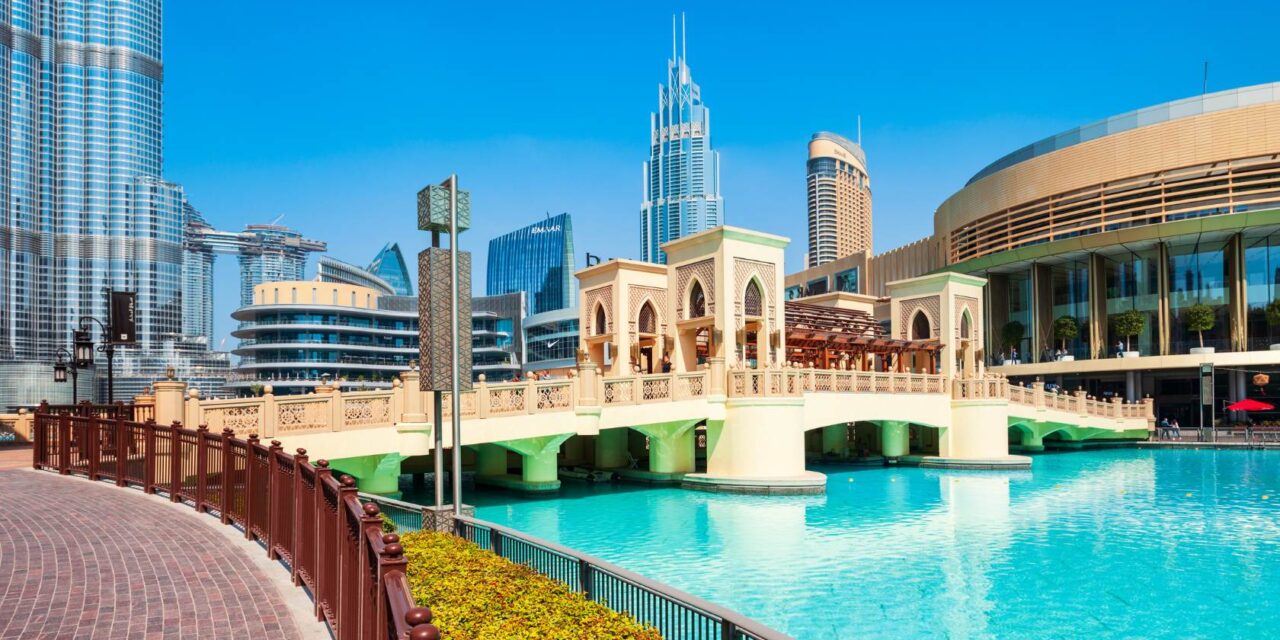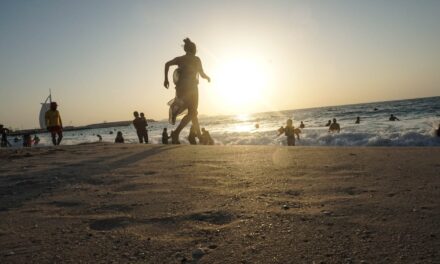Dubai is known for its opulence, towering skyscrapers, and luxurious lifestyle. It is one of the most prosperous cities in the world, with a thriving economy and a high standard of living. But have you ever wondered why Dubai is so rich?
- Key Takeaways
- Historical Perspective
- Economic Diversification
- Strategic Location
- Government Policies
- Infrastructure Development
- Conclusion
- Frequently Asked Questions
- How does Dubai generate its wealth?
- What are the main industries driving Dubai’s economy?
- What policies has Dubai implemented to attract foreign investment?
- How has Dubai’s strategic location contributed to its economic success?
- What role does tourism play in Dubai’s economy?
- How has Dubai invested its wealth to ensure continued growth?
Oil was discovered in Dubai just over 50 years ago, but it only accounts for one percent of its earnings. So, what makes the city of Dubai so rich? The answer lies in its economic diversification, strategic location, and government policies. Dubai has transformed itself from an oil-dependent economy to a diversified one that relies on trade, tourism, and finance.
Dubai’s government has played a crucial role in its economic success. It has implemented policies that promote business growth, such as tax exemptions, free zones, and streamlined bureaucratic procedures. Additionally, Dubai’s strategic location has made it a hub for trade and commerce, connecting Asia, Europe, and Africa. These factors have contributed to Dubai’s prosperity and made it an attractive destination for businesses and investors.
Key Takeaways
- Dubai’s economic diversification, strategic location, and government policies have contributed to its prosperity.
- The city has transformed from an oil-dependent economy to a diversified one that relies on trade, tourism, and finance.
- Dubai’s government has implemented policies that promote business growth and its strategic location has made it a hub for trade and commerce.
Historical Perspective
Dubai’s history dates back to the early 18th century when it was a small fishing village. Over time, the city has transformed into a global business hub and a luxury tourist destination. In this section, I will discuss the historical perspective of Dubai’s wealth, including the discovery of oil and the city’s trade and commerce history.
Discovery of Oil
Dubai’s oil reserves were discovered in 1966, and oil production began in 1969. However, oil accounts for only one percent of the city’s earnings. Dubai’s leaders recognized early on that oil is a finite resource and that the city could not rely on it for long-term economic growth. Therefore, they diversified the economy and invested heavily in infrastructure, real estate, and tourism.
Trade and Commerce History
Dubai has always been a trading center due to its strategic location between Europe, Asia, and Africa. In the 19th century, the city became a major trading hub for pearls, and in the early 20th century, it became a center for gold trading. Dubai’s leaders recognized the importance of trade and commerce and invested heavily in infrastructure to support it.
In the 1960s, Dubai began to develop its port and airport infrastructure, which facilitated the growth of trade and commerce in the region. In the 1970s, the city established the Dubai International Financial Centre (DIFC), which is now one of the world’s leading financial centers. The DIFC has attracted many international companies, including banks, insurance companies, and law firms.
Dubai’s leaders have also invested heavily in tourism, which has become one of the city’s main sources of income. The city has built many luxury hotels, resorts, and shopping malls, which attract millions of tourists every year. In addition, Dubai has become a major center for conferences and exhibitions, which have further boosted the city’s tourism industry.
In conclusion, Dubai’s wealth is the result of its leaders’ vision and foresight. They recognized early on that oil is a finite resource and that the city needed to diversify its economy to ensure long-term economic growth. By investing heavily in infrastructure, real estate, tourism, and trade, Dubai has become one of the world’s leading business hubs and a luxury tourist destination.
Economic Diversification
Dubai’s economy has undergone significant diversification in recent years, moving away from its reliance on oil and towards a more diversified economy. In this section, I will discuss the three main industries that have contributed to Dubai’s economic diversification.
Tourism Industry
Dubai has invested heavily in its tourism industry, with a goal of attracting 20 million visitors per year by 2020. The city offers a wide range of attractions, including luxury hotels, shopping malls, theme parks, and cultural landmarks. In addition, Dubai hosts a number of international events, such as the Dubai Shopping Festival and the Dubai World Cup, which attract visitors from around the world.
Real Estate
Dubai’s real estate market has also contributed significantly to the city’s economic diversification. The city has developed a number of high-end residential and commercial properties, which have attracted foreign investors. In addition, Dubai has become a hub for real estate development and management, with a number of international real estate companies setting up operations in the city.
Finance and Business
Dubai has also become a major center for finance and business in the Middle East. The city is home to a number of international banks and financial institutions, as well as a number of free zones that offer favorable tax and regulatory environments for businesses. Dubai has also invested in its infrastructure, with a modern airport and seaport that make it a hub for international trade.
Overall, Dubai’s economic diversification has been driven by a combination of government investment, private sector development, and strategic partnerships with international businesses. While the city’s reliance on oil has decreased, it remains an important part of the economy, with the government investing in new technologies and initiatives to ensure the sustainability of the industry.
Strategic Location
Dubai’s strategic location is one of the primary reasons why it has become so rich. The city is situated at the crossroads of Europe, Asia, and Africa, making it an ideal location for businesses that want to expand into these regions. Dubai’s location also makes it an excellent hub for global trade, as it is within easy reach of major ports and airports.
Dubai’s proximity to the Strait of Hormuz is also a significant advantage. The Strait is a crucial shipping route for oil and gas, and it is estimated that over 40% of the world’s crude oil passes through it. This makes Dubai a vital player in the global energy market, and it has been able to leverage its location to become a major player in the oil and gas industry.
In addition to its location on the Strait of Hormuz, Dubai is also home to the Jebel Ali Port, which is one of the largest ports in the world. The port is strategically located between Asia, Europe, and Africa, making it an ideal location for businesses that want to expand into these regions. The port is also equipped with state-of-the-art facilities, including a massive container terminal that can handle over 19 million TEUs per year.
Dubai’s location has also made it an attractive destination for international investors. The city has a stable political climate, a business-friendly environment, and a strong economy, making it an ideal location for businesses looking to expand into the Middle East. As a result, Dubai has become a hub for international finance, with many of the world’s leading financial institutions having a presence in the city.
Overall, Dubai’s strategic location has played a significant role in its economic success. Its location on the Strait of Hormuz, its world-class port facilities, and its business-friendly environment have all contributed to making Dubai one of the wealthiest and most prosperous cities in the world.
Government Policies
As a resident of Dubai, I have observed that the government policies have played a significant role in making the city so rich. The government has implemented various policies that have attracted foreign investors and businesses, which have contributed to the economic growth of the city.
Free Trade Zones
Dubai has several free trade zones that offer businesses attractive incentives such as 100% foreign ownership, zero taxes, and no customs duties. These free trade zones have attracted many foreign investors, particularly in the fields of logistics, technology, and finance. The Dubai International Financial Centre (DIFC) is one of the most popular free zones in Dubai, hosting many international banks and financial institutions.
Investor-Friendly Regulations
The Dubai government has implemented several investor-friendly regulations that have made it easier for businesses to operate in the city. For instance, the government has streamlined the process of obtaining business licenses, and businesses can now obtain licenses in as little as three days. Additionally, the government has established a one-stop-shop for businesses, allowing them to complete all their government-related transactions in one place.
Moreover, the government has implemented several policies aimed at attracting foreign talent to the city. For instance, the government has introduced a 10-year residency visa for investors and highly skilled professionals. This policy has made it easier for businesses to attract and retain top talent, which has contributed to the growth of the city.
In conclusion, the Dubai government has implemented several policies that have made the city attractive to foreign investors and businesses. The free trade zones and investor-friendly regulations have played a significant role in the economic growth of the city.
Infrastructure Development
Dubai’s infrastructure development has been a key factor in its economic growth. The city has invested heavily in building world-class infrastructure, which has made it an attractive destination for businesses, investors, and tourists. Here are some of the major infrastructure projects that have contributed to Dubai’s economic success:
Dubai International Airport
Dubai International Airport is one of the busiest airports in the world, serving over 90 million passengers annually. The airport has played a crucial role in connecting Dubai to the rest of the world, making it a hub for international trade and tourism. The airport has undergone several expansions and upgrades, including the construction of Terminal 3, which is the largest airport terminal in the world.
Dubai Metro
The Dubai Metro is a modern, driverless metro system that has revolutionized public transportation in the city. The metro system has two lines, with a total length of 75 kilometers, and serves over 200,000 passengers daily. The metro has reduced traffic congestion and improved connectivity between different parts of the city.
Dubai Water Canal
The Dubai Water Canal is a 3.2-kilometer canal that connects the Dubai Creek to the Arabian Gulf. The canal has transformed the area around Business Bay, creating a new waterfront district with hotels, restaurants, and residential buildings. The canal has also improved transportation by providing a new route for water taxis and ferries.
Dubai World Central
Dubai World Central is a massive logistics and transportation hub that is designed to handle cargo and passenger traffic. The hub includes Al Maktoum International Airport, which is expected to become the largest airport in the world when it is completed. The hub also includes a seaport, a logistics park, and a free zone that offers tax incentives to businesses.
Dubai Parks and Resorts
Dubai Parks and Resorts is a massive entertainment complex that includes three theme parks, a water park, and a hotel. The complex attracts millions of visitors annually, contributing to Dubai’s tourism industry. The complex also provides jobs and business opportunities for local residents.
Overall, Dubai’s infrastructure development has been a major driver of its economic success. The city has invested heavily in building world-class infrastructure, which has improved connectivity, reduced traffic congestion, and attracted businesses and tourists.
Conclusion
In conclusion, after researching and analyzing various sources, it is clear that Dubai’s wealth can be attributed to a combination of factors.
Firstly, the discovery of oil and gas reserves in the 1960s played a significant role in the city’s economic growth. However, it is important to note that oil and gas only account for one percent of Dubai’s earnings today. The city’s leaders have made a concerted effort to diversify the economy and reduce reliance on oil revenues.
Secondly, Dubai’s strategic location between Europe, Asia, and Africa has made it a global center for trade and commerce. The city’s leaders have invested heavily in infrastructure, including the construction of world-class airports, seaports, and highways, to facilitate international trade.
Thirdly, Dubai has created a business-friendly environment that attracts foreign investment and entrepreneurs. The city offers tax incentives, low business setup costs, and streamlined regulatory processes, making it easier for companies to operate and grow.
Fourthly, Dubai’s tourism industry has also played a significant role in its economic success. The city has invested heavily in building luxurious hotels, theme parks, and shopping malls, attracting millions of visitors every year.
Finally, Dubai’s leaders have been successful in creating a sustainable economy that has transformed it into one of the wealthiest cities globally. They have implemented long-term plans and strategies to ensure continued growth and prosperity for the city and its residents.
Frequently Asked Questions
How does Dubai generate its wealth?
Dubai generates its wealth primarily through its oil reserves which, although only accounting for one percent of its earnings, has played a significant role in the city’s economic growth. However, in recent years, Dubai has diversified its economy and now derives its wealth from a variety of industries such as real estate, finance, tourism, and transportation.
What are the main industries driving Dubai’s economy?
Dubai’s economy is driven by a variety of industries, with real estate being one of the most significant. The city has seen a surge in construction and development projects, including the construction of the world’s tallest building, the Burj Khalifa. Additionally, the finance industry has played a critical role in Dubai’s economic growth, with many international banks and financial institutions having established a presence in the city. Other industries contributing to Dubai’s economy include tourism, transportation, and logistics.
What policies has Dubai implemented to attract foreign investment?
Dubai has implemented several policies to attract foreign investment, including the establishment of free trade zones, offering tax incentives, and providing a business-friendly environment. The city has also invested heavily in infrastructure, including transportation and telecommunications, to facilitate business operations. Additionally, Dubai has streamlined its business registration and licensing processes, making it easier for foreign companies to establish a presence in the city.
How has Dubai’s strategic location contributed to its economic success?
Dubai’s strategic location at the crossroads of Europe, Asia, and Africa has played a significant role in its economic success. The city has become a major transportation hub, with its ports and airports serving as vital links between these regions. Additionally, Dubai’s location has made it an attractive destination for businesses looking to expand into new markets.
What role does tourism play in Dubai’s economy?
Tourism is a major contributor to Dubai’s economy, with the city attracting millions of visitors each year. Dubai has invested heavily in developing its tourism industry, with the construction of world-class hotels, theme parks, and other attractions. The city’s warm climate, stunning beaches, and cultural landmarks have made it a popular destination for tourists from around the world.
How has Dubai invested its wealth to ensure continued growth?
Dubai has invested its wealth in a variety of projects and initiatives to ensure continued economic growth. The city has continued to develop its infrastructure, including the construction of new roads, bridges, and public transportation systems. Additionally, Dubai has invested in education and innovation, with the establishment of several universities and research centers. The city has also focused on developing its renewable energy sector, with the goal of becoming a leader in sustainable energy.

























